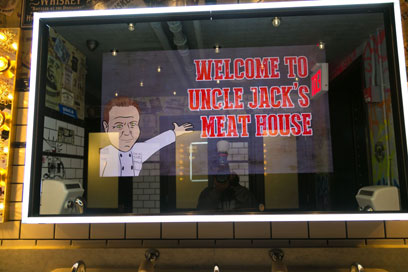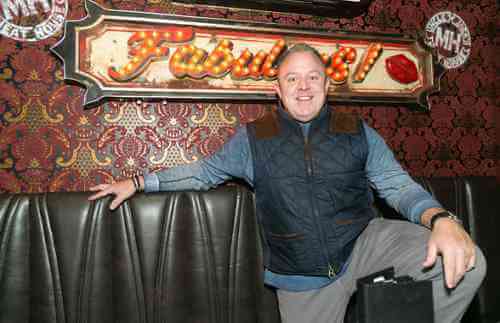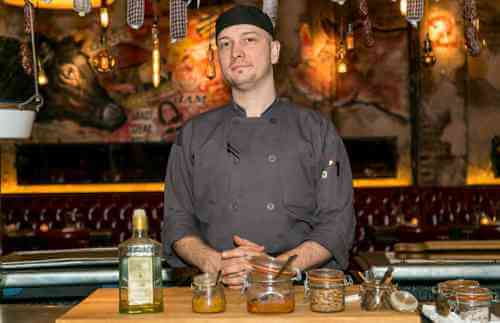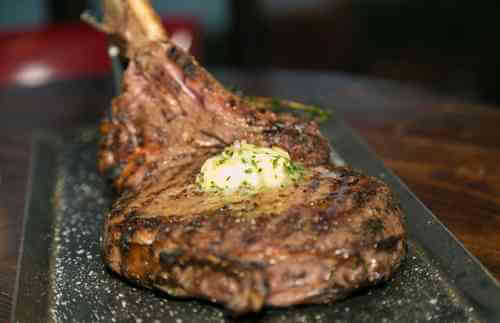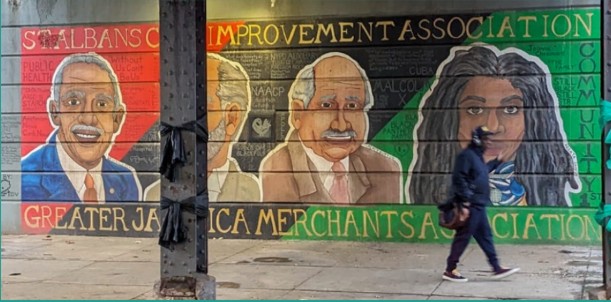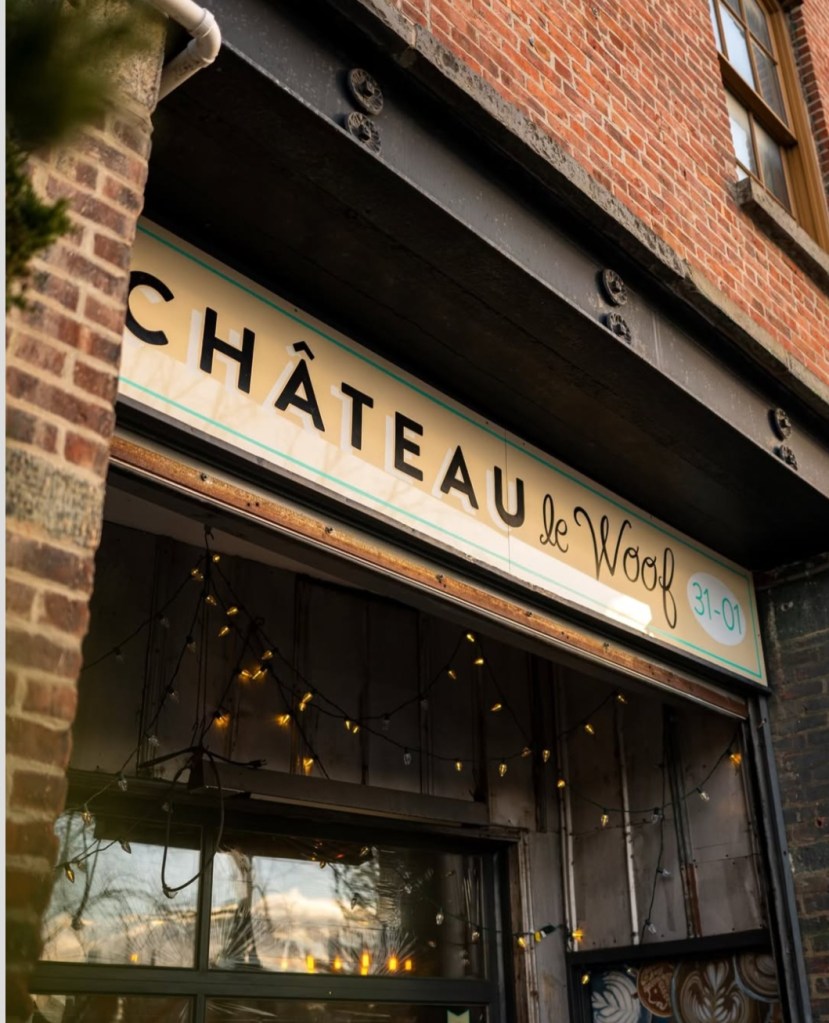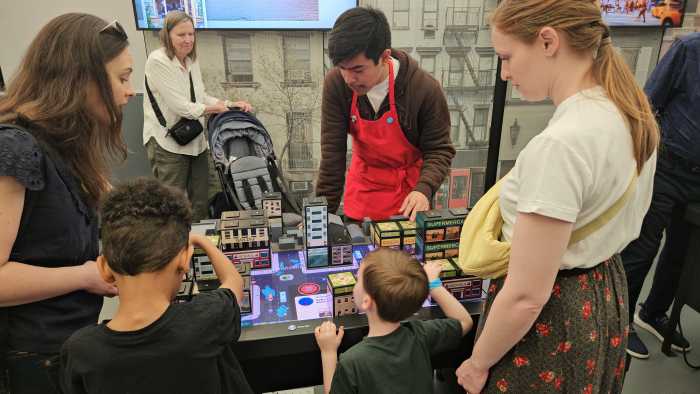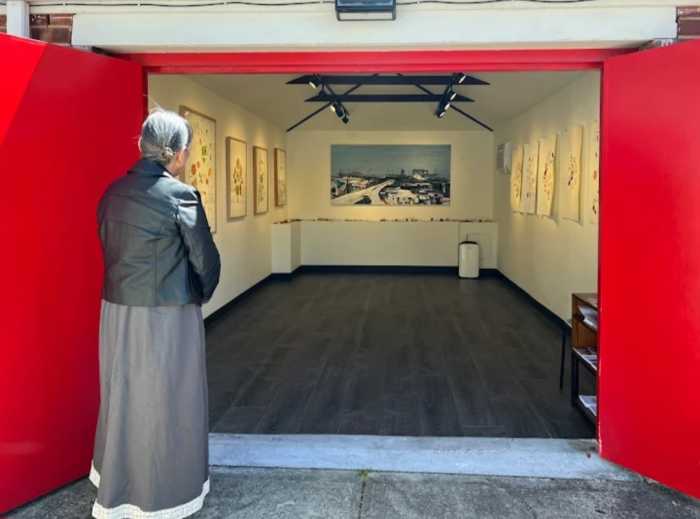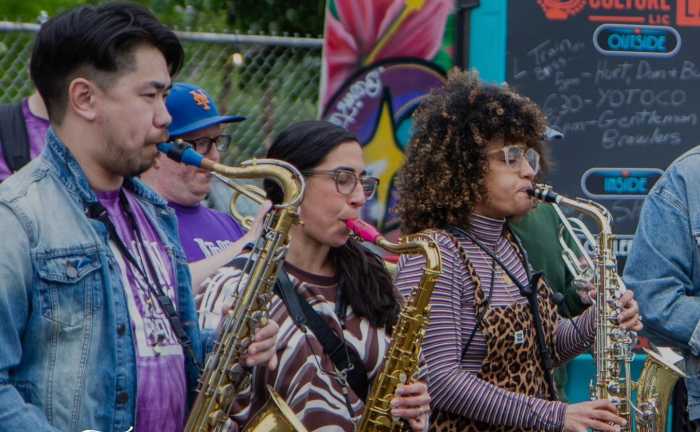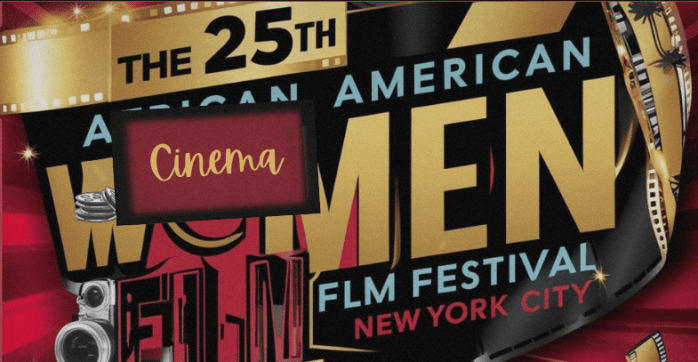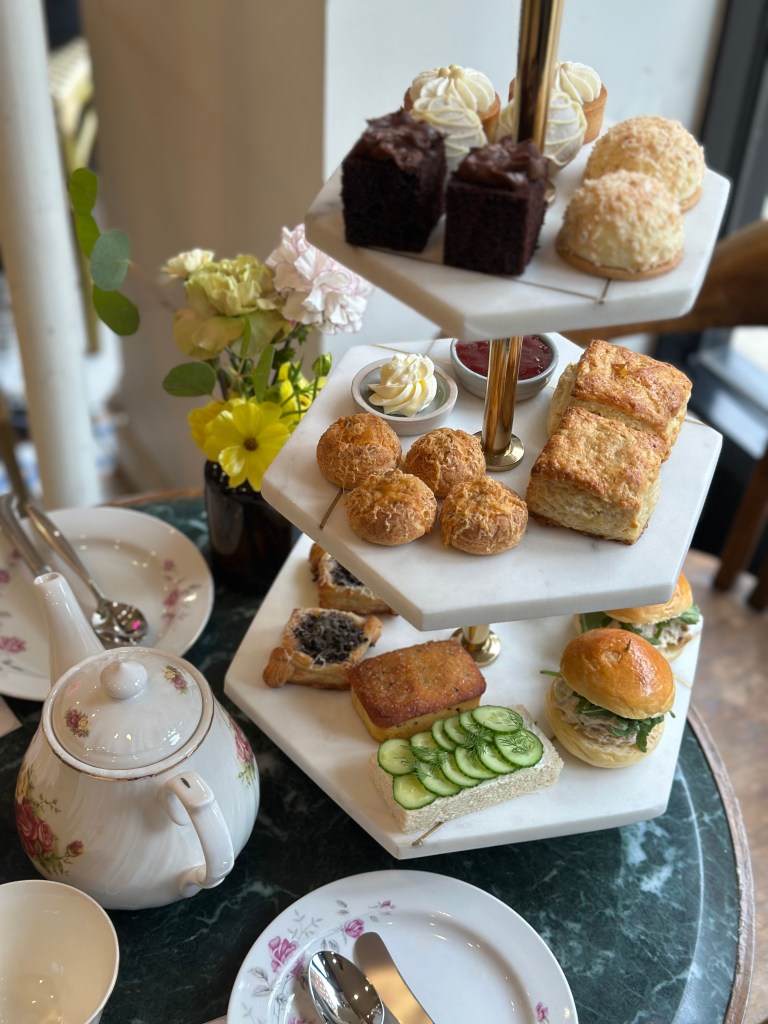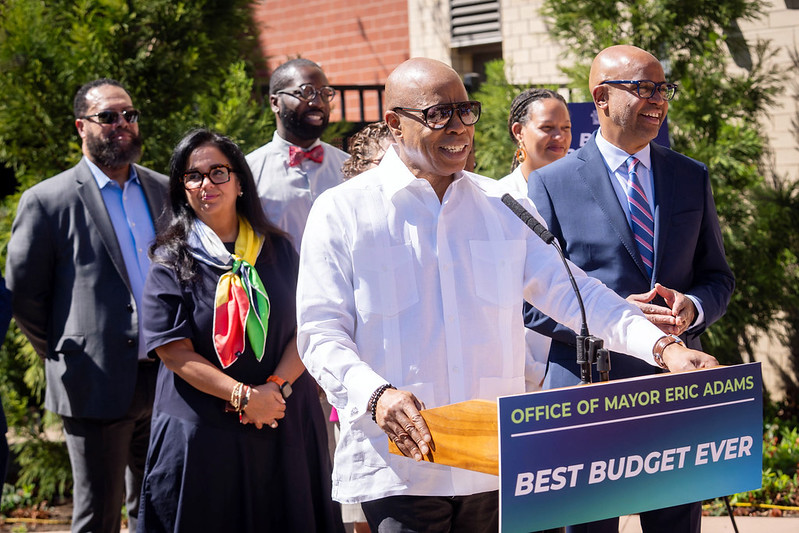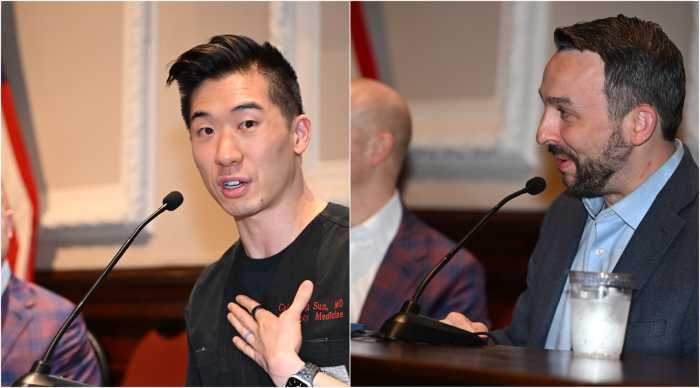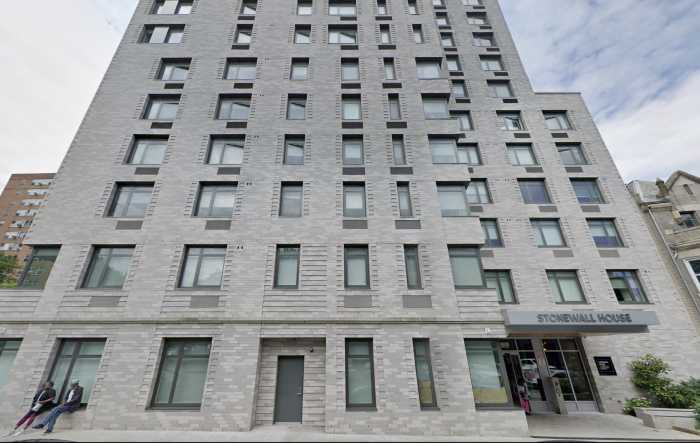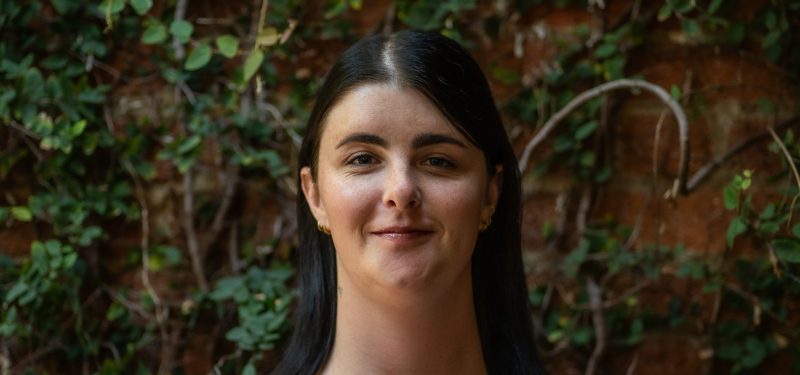By Tammy Scileppi
Are you feeling jacked up? That’s what celebrity restaurateur Willie Degel, the guy behind the Uncle Jack’s Steakhouse empire, asks callers on his cheerful voice-mail message.
The energetic and meat-loving Flushing native and former “Restaurant Stakeout” star, who launched his own Food Network series, seems particularly jacked up about his newest venture, Uncle Jack’s Meat House in Astoria. It’s a spinoff of his flagship Uncle Jack’s Steakhouse in Bayside, which made its debut in 1996.
A trendy and already popular Astoria spot, the Meat House opened at 36-18 Ditmars Blvd. in early December, and lots of curious locals as well as out-of-towners have been stopping by for brunch, lunch, and dinner at the restaurant’s main grilling and dining area, and sampling late-night appetizers with signature cocktails downstairs, at Bootlegger Jack’s Hidden Speakeasy.
The speakeasy, a 50-plus-seat, Roaring 20s-style bar, evokes the Prohibition era with authentic photos and retro décor. You can find that secret password-protected “hangout” behind an authentic meat locker door, but it’s accessible only through the unisex lavatory.
Degel, who has a flair for decorating, said he and his daughter hand-picked the authentic vintage items for the speakeasy. In fact, his sense of style is reflected in each of his six Uncle Jack’s Steakhouse restaurants, including locations on Manhattan’s West Side and in Times Square. The Bayside restaurant, at 39-40 Bell Blvd., resembles an 1890s Victorian saloon, with hand-carved mahogany bar and walls and copper pressed ceilings.
Replacing what was once an old meat factory warehouse in Astoria, Uncle Jack’s Meat House has been cleverly transformed into a quirky and totally unique version of a neighborhood bar and grill, thanks to Degel’s vision, entrepreneurial know-how and keen eye for design. Offering an overall casual vibe, the eye-catching main dining area (upstairs) is accented with meat hooks and red vinyl seating, and boasts an attention-grabbing charcuterie station displaying dry-aged meats made in house. Steaks, steak burgers, sandwiches and salads are on offer, along with mini tacos and other offbeat items.
After a movie, take your date to Bootlegger Jack’s for those unique craft cocktails and fun food and bar menu fare, like steak-burger sliders and Wagyu meatb
“I live for this business,” he said. “I love it. It’s what I do, you know?”
A former bartender, he opened his first restaurant, Hollywood and Main, in Flushing in 1990. He said he had “a vision for a steakhouse unlike any other.”
Known for his signature New York strip steak, Degel says he is called the “Steak Doctor” because of his vast knowledge of meat and because of his family history.
Growing up in an Irish-German household, young Willie and his brothers (“big manly guys”) had meat and potatoes every night, and Degel recalled that his mother could never make enough mashed potatoes.
“So I’m a carnivore,” he said. “I grew up wanting meat, craving meat. I always cooked with my mom and dad in the kitchen; loved prepping.”
His father showed him the ropes of buying and cooking meat, taking him to butcher shops. “I loved interacting with the butchers and different people,” he recalled.
As he was the youngest, Degel said, his older brothers taught him “what to do and most of all what not to do.”
Most important, he learned the value of hard work and taking risks.
“They beat me up a lot, but I wouldn’t want it any other way,” he said.
It appears that Degel may have also inherited the family’s entrepreneurial spirit.
Jack Foley, Degel’s godfather and the source of the Uncle Jack’s name, ran a speakeasy with Degel’s grandfather at Columbus Circle in the 1920s and ‘30s. “My mother made bathtub gin,” Degel said. “I heard all the stories.”
Uncle Jack, he said, then became the head of the longshoremen’s union on the West Side. “It was the whole Irish Hell’s Kitchen story; they put my father and mother to work.”
Degel and his family spent their summers in “an old, shacky house” in Pennsylvania. “My mother brought me to every garage store, every antique shop,” he said. “I love histories, stories.”
It’s little wonder, then, that he designed all his restaurants. “I know every inch of them,” he said. “I hire all the contractors, a lot of great artists, craftspeople. Everything is handmade with my vision. But I couldn’t have done it without my team.”
Team Degel consists of 12 employees who work full time from his corporate headquarters above the original Uncle Jack’s Steakhouse in Bayside.
Describing in a nutshell how the restaurant business works, Degel explained: “It’s building, designing decorating, figuring out how it’s gonna fit. Then you gotta open, fill in your spots, get your people. You gotta have the back of the house, the front of the house, your bar staff, management. It’s layers and layers.
“It takes so much to build a restaurant, especially that size,” he said, referring to the Astoria location, which employs 65 people and is open every day.
Degel said he now employs 300 people among all six restaurants. “I take great pride in that, that I help feed 300 families.”
So what makes a good steak? In Degel’s view, it’s all about what type of steer, who’s raising the steer, how the steer is fed and cared for. “Details matter,” Degel said. “What type of meat and cut you like. Is it select, choice, prime, Wagyu? It’s all got to do with different marbling, different fat flavor, texture.”
Degel, whose enthusiasm and energy got him where he is today, said he embraces failure because “it means I’m learning.” And he never gives up. “I’m demanding, and I want to win on behalf of the customer.”

